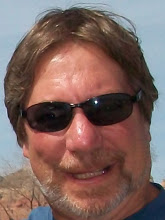He was born in Dayton in April 1919 the year the Cincinnati Reds which he was destined to own, won its first World Series, tainted as it was.
His father Carl was a dairy farmer and started the service for collecting milk produced by local farmers.
The Lindner's had a home on Williams Avenue in Norwood, Ohio. At the time milk was delivered to homes in quart containers. Carl Lindner had a different concept in mind. He would open a cash and carry store in which customers could purchase milk in half gallon containers and save 24 cents on delivery costs. The move to retail came at a time when suburbs were sprouting outside the city limits, and the used of affordable automobiles and the baby boom created a business atmosphere more conducive to retail.
To expand into the suburbs, the family had to learn the intricacies of finance and real estate acquisition. Carl Lindner Jr., who went to night school in order to operate the families home delivery business, developed a working knowledge of finance. That knowledge led him to form American Financial, which grew into one of the largest banking and insurance firms in the country.
Lindner was Cincinnati through and through. It is one of the traits of the city. It is fiercely loyal to its roots. People ask each other which high school during introductions rather than what college. The high school indicates the neighborhood of a person's origin and thus its social background.
Lindner, though he never attended high school, eventually funded one, the Cincinnait Hills Christian Academy.
He bought into the Cincinnati Reds, believing that local ownership would keep the small market team from being moved out of town. His Norwood neighbor Marge Schott owned the team and bought it to prevent out-of-town investors from buying the club. The fear was that ownership from other cities would move the team. There have been franchise moves in the past, the most recent being the Montreal Expos move to Washington after the 2004 season.
Baseball discourages franchise movement and tradition rules the enterprise.
Carl Lindner Jr was an expert in finance but baseball has a much different system of finance. The conventional business world is based on return on investment. Baseball economics are less predictable.
Lindner brought back Ken Griffey Jr, a local product with ties to the City's icon The Big Red Machine. He invested to bring Griffey to town and Griffey deferred income to allow Lindner to build a team around him. Injuries and poor personnel moves by general manager Jim Bowden III prevented the Reds from building that winning team.
Lindner's loyalty caused him to over pay another local talent, Barry Larkin, at a point in Larkin's career where his skills didn't merit the investment.
Bowden believed that Lindner's wealth would give him unlimited access to funds to build and instant winner. Bowden wanted to deal his way into the win column rather than build a team through the farm system.
When Bowden was relieved of his duties, Lindner hired Dan O'Brien to build the farm system. O'Brien laid the foundation and drafted Homer Bailey and Jay Bruce. The youthful talent the Reds are seeing now started at the end of Lindner's ownership.
In 2005 Lindner sold the team to Bob Castellini, another local businessman, who had experience in baseball as an investor in the St. Louis Cardinals.
Lindner died on Monday night at the age of 92.
He was my neighbor my parents lived on Williams Avenue in Norwood when I was born. Lindner's family lived two blocks down the street in a modest house during that time. My mother used to take me for ice cream at the original United Dairy Farmers on Montgomery Road. My first real job was at the United Dairy Farmers in Mt. Airy on Colerain Avenue. Then had many contacts with Lindner as I covered the Reds for SportsTicker and the Associated Press.
I cannot say that I knew him well but he has had an influence on my life. May he rest in peace.


No comments:
Post a Comment